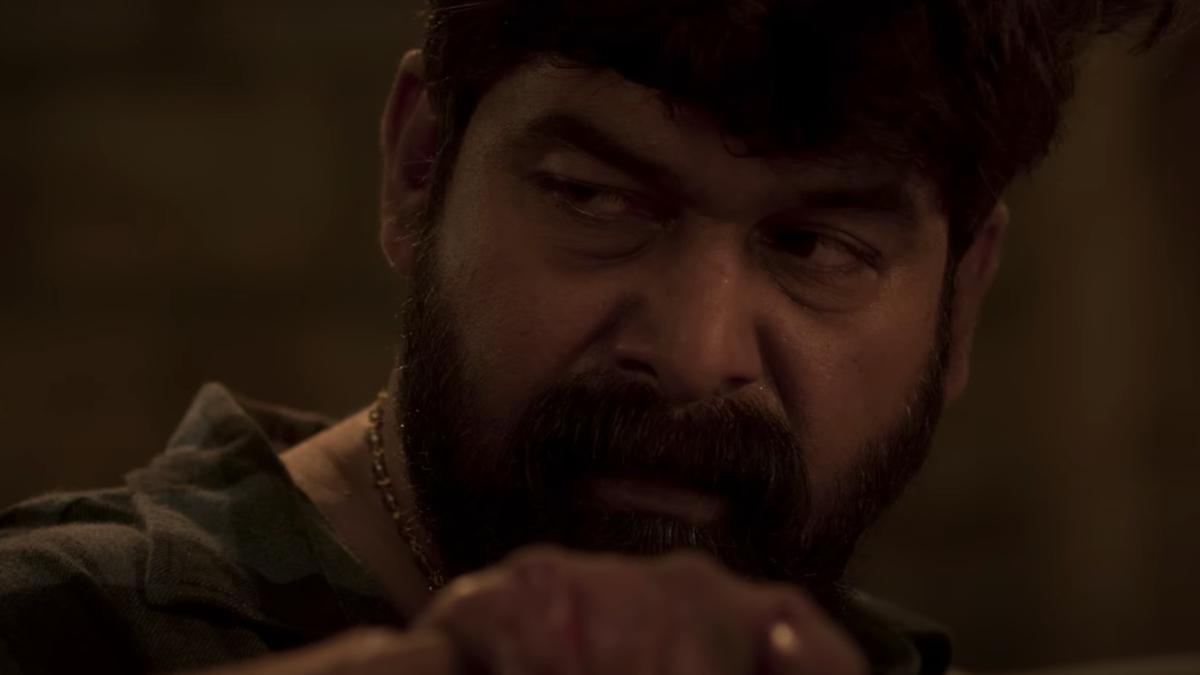
At the heart of Joju George’s film ‘Pani’ is a narrative that ventures beyond the conventional expectations of a crime thriller. What begins with a chilling murder in plain sight shifts its trajectory to delve deeper into a mundane quarrel at a supermarket, a scene pivotal enough to drive the plot forward. Here, we meet Don (Sagar Surya) and Siju (V.P. Junaiz), two fledgling criminals ensnared in their first significant endeavor in the underworld. It is during this exchange that audiences perceive a transformation within them — a pair once amateurs in the world of crime now intoxicated by the thrill of the kill and the lure of easy money.
The pivotal supermarket scene marks a turning point not only for these characters but for the story itself. Instead of retreating after their initial foray into crime, Don and Siju embrace their newfound notoriety, soon finding themselves at odds with Giri (Joju George), a prominent figure in Thrissur’s mafia network. This dynamic creates an inversion of roles where the hunters become hunted, yet they persist driven by an insatiable hunger for more.
Joju George, wearing multiple hats as the screenwriter and director, orchestrates the film around the psyche of these emergent criminals. While ‘Pani’ may echo elements typical of a revenge narrative, it is the complex, unpredictable motivations of Don and Siju that breathe life into the storyline, compelling viewers to question the boundary between predator and prey. As one of the characters astutely observes, the larger syndicate is easily visible to them, yet they remain invisible to the syndicate, highlighting their unique outsider’s perspective.
In stark contrast, the internal workings of the mafia syndicate are illustrated with finesse, unveiling the camaraderie and history shared by its members.
. This ensemble, comprising Prashanth Alexander, Bobby Kurian, Sujith Sankar, and Abhaya Hiranmayi, smoothly captures the essence of a tight-knit fraternity whose roots trace back to their collegiate days. The deep connection between Giri and his partner Gowri (Abhinaya) is also meticulously crafted, imbuing the narrative with a rich emotional undertone.
The film paints the Thrissur mafia as an entity that wears a façade of respectability, indulging in city-building and real estate while operating a sinister underbelly through their strategically placed underlings, including their cousin Kalyani (Chandini Sreedharan), who holds the influential position of ACP. Their methodology of delegation creates the illusion of innocence, encouraging audiences to empathize with their cause despite their criminal foundations.
Joju George deftly maneuvers the progression of events, maintaining a trajectory and tempo vivid enough to keep viewers engaged. An exhilarating car chase sequence, positioned strategically before the climax, amplifies the tension, laying the groundwork for the movie’s explosive resolution. Although the film’s raw violence and explicit content may not be for everyone, these elements underscore the gritty realism that George seeks to portray. Unfortunately, the inclusion of graphic scenes involving sexual assault as a catalyst for vengeance is an area where the film stumbles, reiterating a narrative trope that could have been avoided.
In his debut as a director, Joju George delivers an intense and visceral cinematic experience, masterfully orchestrating a story that captivates viewers even amid familiar themes of vengeance. Despite its exploration of darkness, ‘Pani’ shines as a compelling portrayal of ambition, power, and the relentless pursuit of more, a reflection that audiences continue to engage with as it runs its course in theaters.
‘Pani’ boldly breaks new ground in Malayalam cinema, challenging norms while delivering a powerful punch. The film, now showing in theaters, beckons audiences to explore the complex tapestry of Thrissur’s clandestine operations and the unforeseen consequences of the choices made within them. Published – October 25, 2024, 01:36 pm IST.












